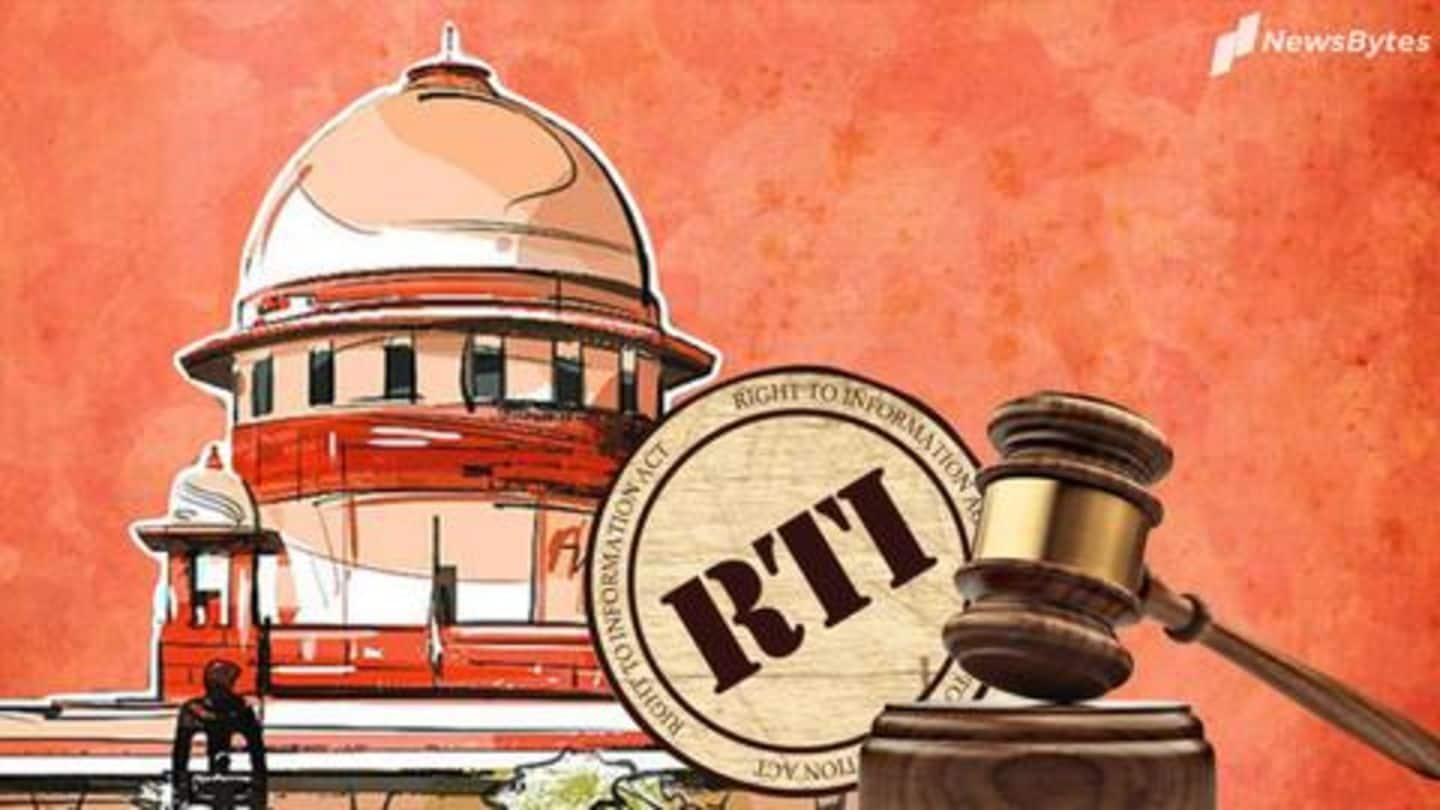
Chief Justice of India comes under RTI Act: Supreme Court
What's the story
On Wednesday, the Supreme Court observed that the office of Chief Justice of India is a public authority and hence falls under the purview of the transparency law, Right to Information Act (RTI).
The apex court pronounced the landmark verdict while hearing petitions challenging the Delhi High Court's decision bringing the office of the CJI under the ambit of the RTI Act.
Here's more.
Details
Nobody wants to remain in the state of darkness: SC
Reportedly, a five-judge bench, headed by CJI Ranjan Gogoi, passed the judgment saying, "Nobody wants to remain in the state of darkness or keep anybody in the state of darkness."
However, the bench added, "In the name of transparency, you can't destroy the institution."
Justices NV Ramana, DY Chandrachud, Deepak Gupta and Sanjiv Khanna also constituted the bench.
Twitter Post
Transparency doesn't undermine judicial independency, SC observes
'Transparency doesn’t undermine judicial independency', Supreme Court says while upholding the Delhi High Court judgement which ruled that office of Chief Justice comes under the purview of Right to Information Act (RTI). https://t.co/axAjUFzDRr
— ANI (@ANI) November 13, 2019
Case
SC was hearing petitions filed against 2010 Delhi HC order
Earlier on April 4, the SC had reserved its judgment on petitions filed in 2010 challenging the Delhi High Court and the central information commission's (CIC's) orders.
The appeals were filed by the SC Secretary-General and its central public information officer.
To recall, on January 10, 2010, the Delhi HC ruled that CJI comes under the ambit of the RTI law.
Information
Delhi HC judgment seen as personal attack against then-CJI
The HC had then said that judicial independence was not a judge's privilege, but a responsibility cast upon him. However, the judgment was viewed as a personal attack against the then-CJI, KG Balakrishnan, who opposed the disclosure of information relating to judges under RTI.
History
How did move to bring CJI office under RTI initiate?
The move to bring the CJI office under the transparency law was initiated by RTI activist SC Agrawal.
Agrawal's advocate, Prashant Bhushan, had argued that the apex court should not be judging its own cause, in the first place.
Bhushan had contended that the judiciary shouldn't object to divulging information as they don't exist in a different universe and aren't free from "public scrutiny."
Quote
People entitled to know what public authorities are doing: Bhushan
Bhushan had then argued, "This is not the independence from accountability. Independence of the judiciary means it has to be independent of the executive and not independent from the common public. People are entitled to know as to what public authorities are doing."